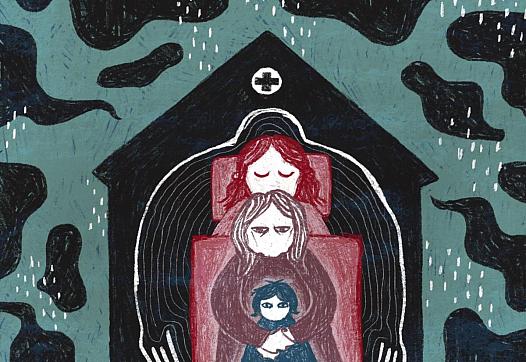LOVE IS ALWAYS: Meaningful connections for people with IDD
The story was originally published by KJZZ with support from our National Fellowship.
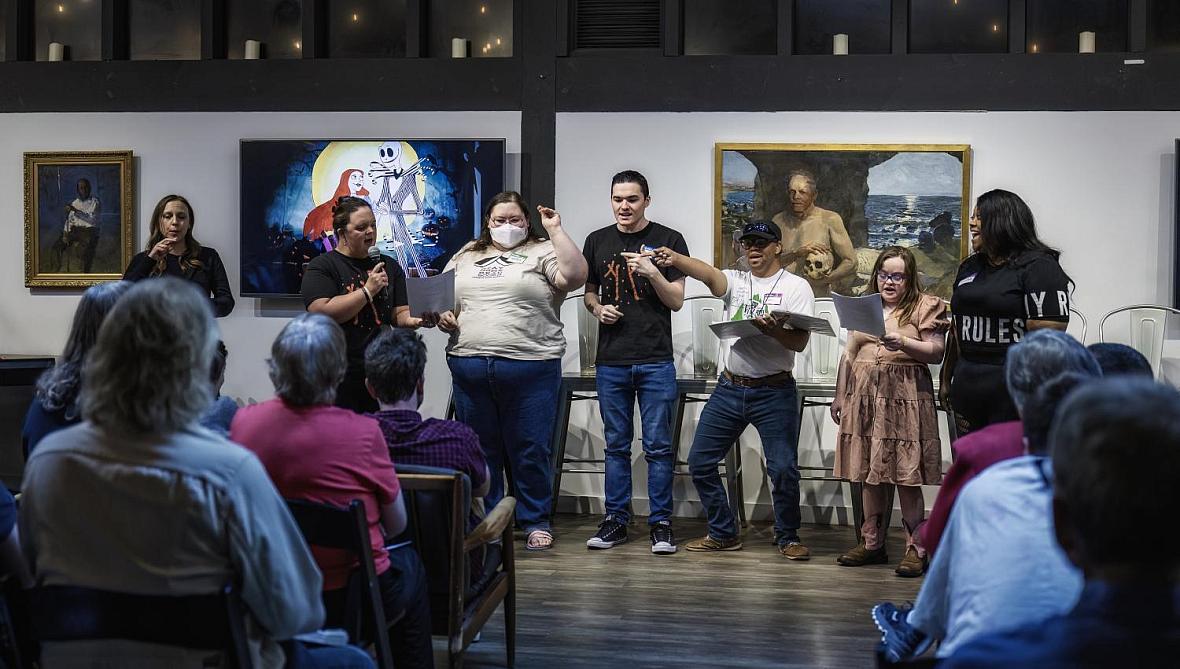
Kelly Gutierrez (ASL interpretor), Detour actors Kelly Janssen, L.J. Lavancil, Hailey Simon, LJ, Christopher Champlin, Sophie Stern and former Detour artistic director LaRiche Lamar perform at the Love Is Always event on Feb. 18, 2023.
Institutions for people with intellectual and developmental disabilities, known as IDD, are largely a thing of the past, particularly in Arizona. That's a good thing — but that doesn't necessarily mean that life is much better for some people with IDD.
In UNSAFE, a five-part series that aired in late 2022, Amy Silverman and KJZZ reported that abuse and neglect of people with IDD can happen anywhere — it's not limited to the institutions of the past.
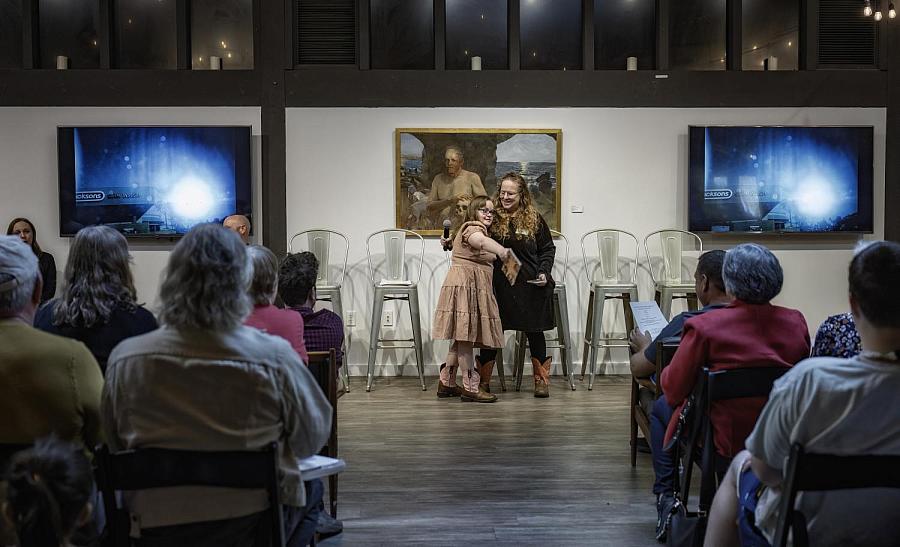
Sophie Stern and her mom, Amy Silverman, introduce the Love Is Always event.
As part of this project, which was completed with a fellowship from the Annenberg Center for Health Journalism at the University of Southern California, Silverman also received support for an audience engagement project.
She chose to focus directly on people with IDD — and invited members of the community to take the stage at Changing Hands Bookstore in Phoenix on a Saturday in February 2023 and tell their stories as part of the event Love Is Always.
The idea was to center journalism on a vulnerable population that is often not included in journalism the way the rest of us are. How many times have you read or heard a story about people with IDD that doesn't quote a person with IDD in a meaningful way? The theme for the event was love — in all forms — and how to find it in the community.
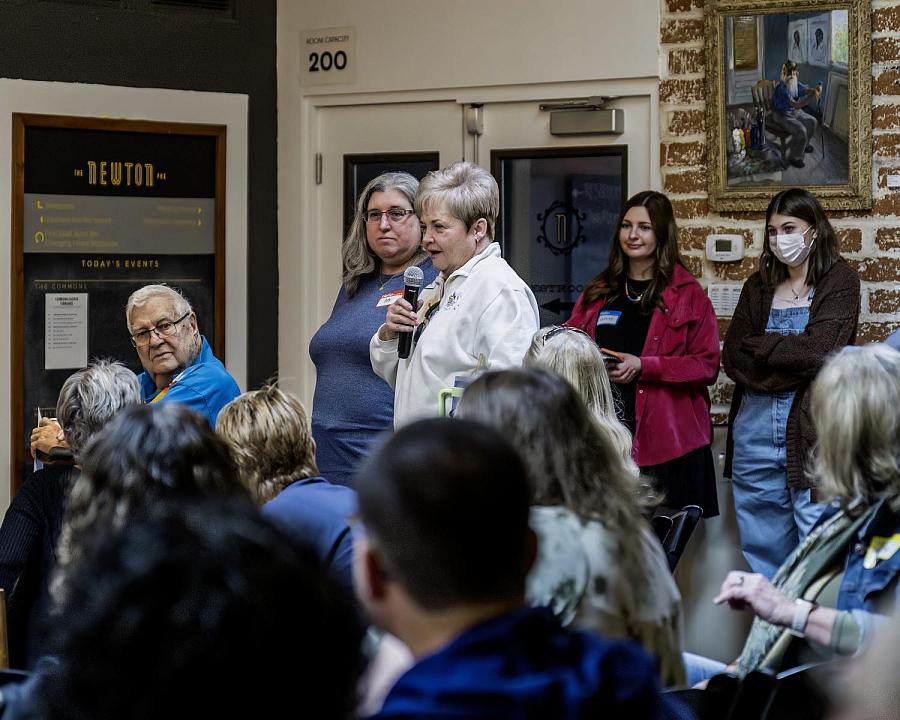
Linda Mecham (right, with microphone), chairperson of the state's central division Independent Oversight Committee for the Division of Developmental Disabilities talks about her work analyzing incident reports and working to protect people with IDD.
The conversation focused on people with IDD in the following ways:
Actors from Detour Company Theatre, a local troupe for people with disabilities, performed songs from the rock opera "Rent."
Three community members with IDD — including Silverman's daughter, Sophie Stern, told stories about their lives.
A dozen people with IDD shared stories and answered questions as part of a panel discussion moderated by Silverman, on the topic of finding love in the community.
A slide show presentation featured photos taken by 26 people with IDD who live in community settings in Arizona, as a way of getting a glimpse of life through the individual's eyes. Disposable cameras were provided as part of the project.
A sensory table on the theme of love, created by Arizona State University Ph.D. student Rachel Levit Adams, offered a chance to consider love using all the senses.
Several groups presented materials, including Special Olympics Arizona, the Arizona Developmental Disabilities Planning Council, Bloom365 and Amateur Hour.
Silverman created a printed, take-home zine that included many elements reflective of the event — an interview with a Detour actor about why performing in "RENT" was meaningful to her; the stories read aloud at the event; and a list of resources. The zine was translated into plain language to make it accessible to people with IDD.
Formal language version
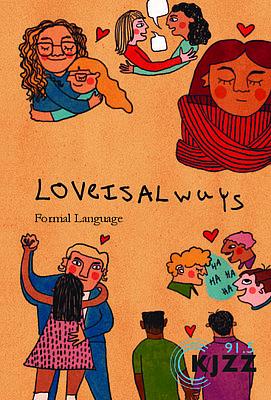
Plain language version
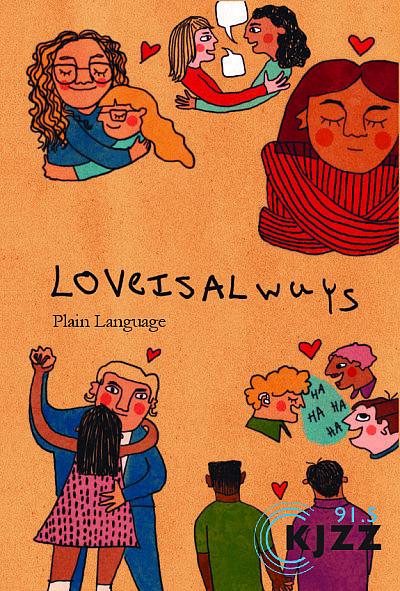
Also included: preliminary research by the University of Arizona's Lynne Tomasa, who has spent several years researching sexual violence against people with IDD. This was paired with reporting from KJZZ's series, UNSAFE.

